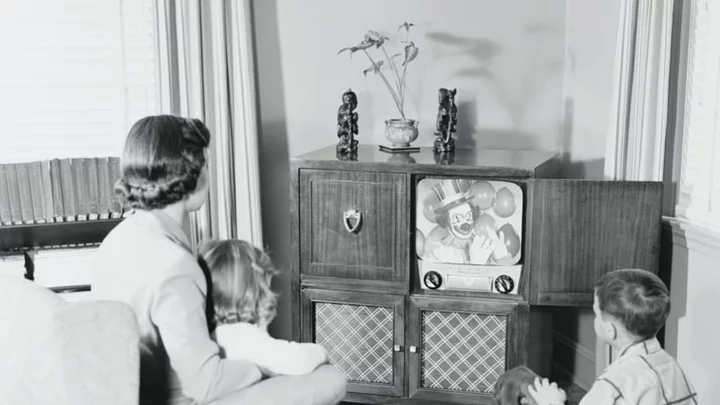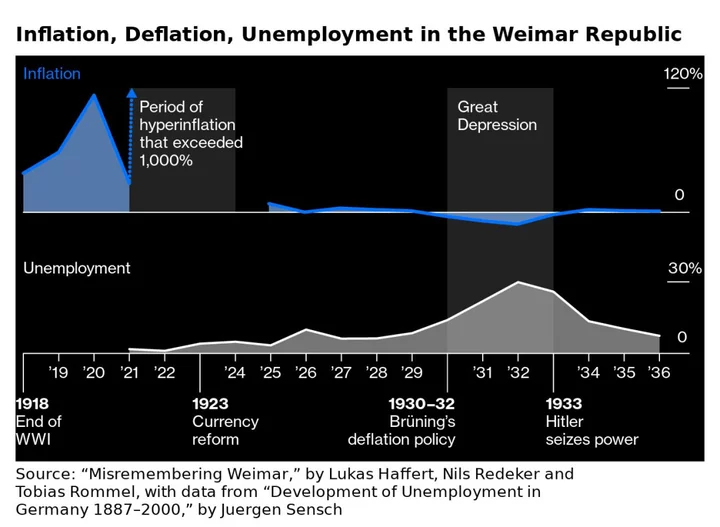
Amy Dowden reveals ‘life-threatening’ sepsis diagnosis amid cancer treatment
Amy Dowden has revealed that she was recently diagnosed with “life-threatening” sepsis as she underwent cancer treatment earlier this month. The Strictly Come Dancing star, 33, told her nearly 490k followers on Instagram that she suffered a “setback” in her treatment and had to spend “several days in hospital” being treated by an ICU team. In June, Dowden underwent a mastectomy after being diagnosed with stage three breast cancer the month prior. She began chemotherapy earlier this month after doctors found another type of cancer. Speaking to Hello! magazine in a new interview, the professional dancer said she started feeling ill two days after her first round of chemotherapy and started getting a fever. “I started having a temperature of 37.7 degrees Celsius,” she recalled. “At the time, I didn’t realise that having a temperature of 37.5 or above could be fatal for a chemo patient. I just thought it was my reaction to chemo, but as it turned out, I had already got an infection.” She added: “I felt freezing cold but I was all clammy and shaking. My mum and dad rang my red card [which provides the chemotherapy team’s contact details and current treatment information] and they said to hang up and ring the ambulance.” Dowden continued: “I didn’t want to go into hospital; at the time I didn’t realise how ill I was. “I knew it was a Saturday night, so A&E would probably be crowded, and it was dangerous being around people as it’s more likely you’ll pick up an infection. “On chemo, you don’t have your white blood cells to fight infection. We now know I had the infection just before I started chemo, but we were never able to pinpoint what actually caused it.” Dowden said she was so ill that she couldn’t really understand the danger she was in. “The doctors and nurses were telling me I had sepsis and that it was life-threatening, but I wasn’t taking it in,” she said. “I didn’t become properly aware until later. I told my dad, ‘I’ve got sepsis’ and he said, ‘I know!’” On her birthday on 10 August, Dowden spent the day in hospital after her temperature went up again. She is currently recovering at home and has been able to continue her chemotherapy treatment. The treatment has caused the TV star to start losing her hair and she now wears a wig, but she is hopeful she will be able to appear on the forthcoming series of Strictly in some way. She revealed that the Strictly production team is “getting me some fabulous wigs ready”. “The team are being guided by me – they’ve been utterly amazing,” Dowden said. “We’ve got some dates in the diary, but it will depend on how I feel. We’re taking it a step at a time.” Dowden’s professional dancer colleagues on the show have been sending her videos, flowers and presents to encourage her as she undergoes treatment, she added. “I speak to Dianne [Buswell] every single day. This is impacting on them as well because we’re a team,” she said. “I’m grateful they are including me because Strictly will help me get through the next few months, mentally. It’s just the tonic that I need.” Last week, Dowden opened up about her hair loss and admitted she was finding it “so hard”. She shared a photo of a clump of her hair that had fallen out with a series of broken heart emojis and wrote: “So much everyday! So hard! One day at a time!” After her mastectomy, Dowden was told she needed chemotherapy as doctors found further tumours after the surgery. In an Instagram Live chat, she said: “They found another type of cancer and then they told me I needed chemo – for me that was a massive blow. It wasn’t in the plan, originally – and I know the plan you can’t get fixated on.” Dowden is married to her long-term partner Benjamin Jones, who is also a professional dancer. The couple wed in 2022, after having to reschedule their wedding due to the Covid pandemic. Read More ‘My depression ate me up and stopped me doing the thing in life I loved the most – cooking’ Maya Jama and Stormzy ‘confirm relationship’ as they’re seen holding hands in Greece Pilot makes sweet announcement to his flight attendant mother on first flight together Strictly’s Amy Dowden finding it ‘so hard’ as she shares hair loss update amid cancer BBC Breakfast’s Emma Vardy announces birth of first child Ultra-processed food may cause ‘tidal wave of harm’, including heart attack, stroke
2023-08-28 22:28

The World’s Oldest Hotel Has Been Dispensing Hospitality for More Than 1300 Years
Want a real feeling for history? Go to Nishiyama Onsen Keiunkan in Japan, a hotel that's played host to shoguns and emperors.
2023-08-28 22:27

Poor Reception: 10 Wildly Inaccurate Predictions About Television
“[Television] won’t be able to hold onto any market it captures after the first six months. People will soon get tired of staring at a plywood box every night.”
2023-08-28 20:22

BBC Breakfast’s Emma Vardy announces birth of son: ‘Presenting my best breaking news ever’
BBC Breakfast star Emma Vardy has welcomed her first child with husband Aaron Adams. The co-host of the morning news programme announced her “best breaking news ever” on Instagram, where she shared a photo of herself cradling her newborn. Vardy first revealed her pregnancy in May, when she shared a photo of her baby bump after a day of surfing in Co Sligo. The BBC Ireland correspondent wrote on Instagram: “Presenting my best breaking news ever. Baby boy Jago Fionn is here. “At just a few hours old, playing a little camera shy. Huge thanks to the dedicated and talented midwives and doctors at Belfast’s Royal Victoria Hospital for looking after us so well.” She added that she and Adams were “smitten and so in love”. The photo was a selfie taken from her hospital bed as she cuddled the newborn baby, who has dark hair and was dressed in a white onesie. Announcing the news of her pregnancy in May, Vardy posted a photo of herself holding a surfboard as she showcased her bump. She wrote: “Well folks it’s definitely getting a bit harder to balance…. extra cargo hitching a ride!! Still managing to catch a few waves though. “Beautiful weekend in Co Sligo, and a very exciting summer ahead!!” She added: “#paddlingfortwo #babyonboard.” Last month, Vardy celebrated her baby shower and shared a series of photos from the joyous event. She wore a one-shouldered white gown and a beautiful pink and yellow flower crown as she posed in front of a large blue-and-white balloon display. Other photos included in the post showed her friends and family posing with her, all wearing green flower crowns, as well as photos of the decoration and tablescape for the event. “Belated Babyshower spam for the gram,” she wrote in the caption. Vardy married Adams in March 2022 in Co Antrim, where Adams’ son Jonah acted as ring bearer. Read More ‘My depression ate me up and stopped me doing the thing in life I loved the most – cooking’ Maya Jama and Stormzy ‘confirm relationship’ as they’re seen holding hands in Greece King Charles planning ‘major shakeup’ to Royal Household staff Elle King opens up about her ‘deep depression’ amid two-year postpartum journey Sienna Miller pregnant with her second child Serena Williams celebrates second pregnancy with ‘pre-push party’
2023-08-28 20:21

Ultra-processed food may cause ‘tidal wave of harm’ including stroke and heart attack risk
Two new studies have found conclusive links between the consumption of ultra-processed foods (UPF) with increased cardiac disease risk, including heart attacks and strokes. The research, presented at the annual meeting of the European Society of Cardiology in Amsterdam, found highly processed food sold in stores across the world, such as fizzy drinks, cereals and ready-to-eat meals, may lead to an increased risk of cardiovascular diseases and hypertension. Henry Dimbleby, the UK government’s former food tsar, said the findings should be a “wake-up call” for the country. “Britain is particularly bad for ultra-processed food. It is storing up problems for the future,” he told The Guardian. “If we do nothing, a tidal wave of harm is going to hit the NHS.” One of the studies, conducted by scientists from the Fourth Military Medical University in China, conducted a review of 10 studies that included 325,403 participants and 38,720 cases of cardiovascular disease (CVD) events, including heart attack and stroke. It found a conclusive association between UPF and heart disease risk. Scientists found that a 10 per cent increase in UPF consumption in daily calorie intake is linked to a 6 per cent rise in heart disease risk. Researchers also observed that the lowest risk was at a less than 15 per cent per day of UPF consumption out of total calorie intake. However, heavy UPF consumption “was significantly and positively associated with increased risk of cardiovascular events,” scientists noted. The other research, also presented at the world’s largest heart health conference, assessed the link between UPF intake with CVD and hypertension in a population of middle-aged women in Australia. Scientists, including those from the University of Sydney, assessed health data of about 10,000 women aged 46-55 years who were recruited into the Australian Longitudinal Study on Women’s Health and followed for 15 years. They assessed the contribution of UPF in the daily dietary intake of these women as well as their self-reported heart disease and stroke, and/or hypertension incidences. The women included in the study had an average UPF intake of 26.6 per cent of total food dietary intake. Over their 15 years of follow-up, scientists found 1,038 incident CVD and 4,204 hypertension cases. Among the middle-aged women, scientists observed that a higher UPF intake was associated with higher risk of CVD and hypertension. “These findings lend support to minimising UPF intake as a component of a heart-healthy diet,” scientists wrote in the study. Taken together, the findings hinted that the harm caused by UPF may be more than just due to their high salt and fat content. “If there is something inherent in the processing of foods that is harmful, then that is a disaster,” said Mr Dimbleby. Read More First-of-its-kind study finds laughter is indeed good medicine, especially for the heart How many steps a day can cut risk of early death (and it’s not 10,000) Weight loss jabs improve heart failure symptoms in obese patients – study First-of-its-kind study finds laughter is indeed good medicine How many steps a day can cut risk of early death (and it’s not 10,000) ‘Boy moms’ called out for dubious logic behind teaching their sons to cook
2023-08-28 14:54

First-of-its-kind study finds laughter is indeed good medicine, especially for the heart
A new, first-of-its kind study has demonstrated that laughter can indeed be good medicine – especially for those with heart disease. Laughter therapy can increase the functional capacity of the cardiovascular system that includes the heart, lungs, arteries and veins, found the yet-to-be peer-reviewed research presented at the annual meeting of the European Society of Cardiology in Amsterdam. Researchers, including Marco Saffi from the Hospital de Clínicas de Porto Alegre in Brazil, found reduced inflammation and better signs of health among coronary artery disease patients who engaged in a course of laughter therapy. They found laughter therapy sessions could cause the tissue inside a patient’s heart to expand, potentially leading to increased oxygen flow through the body. Until now, different treatments without the use of drugs have been studied in coronary artery disease patients, but the benefits of rehabilitation using laughter therapy was not fully assessed, scientists said. In the new study, the impact of laughter therapy on the functional capacity, tissue function as well as markers of inflammation in the bodies of patients with coronary artery disease was evaluated. The condition, which is one of the most common diseases in the world, arises when the heart’s coronary arteries struggle to supply the organ with enough blood, oxygen and nutrients. Scientists conducted a clinical trial involving 26 adults with an average age of 64 from August 2016 to December 2020, measuring each of their oxygen uptake and the widening of their main artery when blood flow increases. Researchers also measured levels of molecules in the patients’ bodies, indicative of inflammation such as interleukin (IL)-6, IL-10, tumour necrosis factor (TNF)-alpha, vascular cell adhesion molecule (VCAM) and intercellular adhesion molecule (ICAM). Thirteen of the patients were assigned to the group that underwent laughter therapy by watching two self-selected TV comedy shows per week. The other 13 served as the control group and watched “neutral documentaries”, scientists noted. They said the study is the first controlled clinical trial to evaluate the impact of rehabilitation using laughter therapy on patients with coronary artery disease. It revealed an increase in the body’s peak oxygen uptake and improvements in tissue function as well as the body’s markers of inflammation. The new findings are in line with previous research that suggested having a good laughter session makes the body release endorphins, which are hormones that reduce stress and inflammation and help the heart and blood vessels relax. Based on the new results, presented at the world’s largest heart conference, scientists say laughter therapy may constitute an “effective form of cardiac rehabilitation in this patient population”. Read More How many steps a day can cut risk of early death (and it’s not 10,000) A broad genetic test saved one newborn's life. Research suggests it could help millions of others Snoring before age 50 is a health ‘red flag’, experts suggest How many steps a day can cut risk of early death (and it’s not 10,000) Experts warn that snoring before you turn 50 is a health ‘red flag’ ‘Boy moms’ called out for dubious logic behind teaching their sons to cook
2023-08-28 13:59

The Ukraine war, propaganda-style, is coming to Russian movie screens. Will people watch?
The Russian authorities have announced an endeavor to boost production of movies glorifying Moscow’s actions in Ukraine this year
2023-08-28 13:26

German Inflation Trauma of 1923 Strikes an Uneasy Chord Today
By late-1923, hyperinflation had rendered Germany’s currency so worthless that one woman used several billion marks of banknotes
2023-08-27 13:54

What's the Kennection? #77
All five answers to the questions below have something in common. Can you figure it out?
2023-08-27 12:20

Boil-water notice issued after E. coli found in water supply near Phantom Ranch at Grand Canyon National Park
A boil water advisory has been issued after E. coli bacteria were found in the water supply near Phantom Ranch at Grand Canyon National Park, officials warned Friday.
2023-08-26 23:23

Snoring before age 50 is a health ‘red flag’, experts suggest
Young adults who snore at night have a significantly higher risk of having a stroke and developing heart disease when they get older, a study has warned. Doctors have said that snoring should be treated as a “red flag” among adults below the age of 50. The study found that young adults who snore are 60 per cent more likely to develop a stroke when they reach middle age, and five times more likely to develop a heart rhythm disorder. The researchers presented their findings at the European Society of Cardiology Congress in Amsterdam. They examined data from 766,000 US adults aged 20 to 50. These included 7,500 adults with obstructive sleep apnoea, a condition that causes interruptions to normal breathing during sleep. This can lead to loud snoring and interrupted sleep as sufferers wake up while struggling to breathe. The study found that, over the 10-year follow-up period, patients with sleep apnoea were 60 per cent more likely to suffer a stroke compared to those who did not snore as frequently. They were also five times more likely to develop atrial fibrillation, a heart condition that causes irregular and often abnormally fast heart rate. Symptoms of atrial fibrillation include heart palpitations, dizziness and shortness of breath. Lead author Professor Sanjiv Narayan, of Stanford University, said: “Sleep apnoea is really common but we sort of ignore it because we think it’s trivial or just a little bit of a nuisance. “Until now no one’s really shown the magnitude of the size of the risk for heart diseases. That’s what really surprised us.” He added that the study looked at “relatively young people” who may not know they are at risk. “If they had a stroke, it would devastate young families. It could take them away from their workplace. It would destroy their lives for the next 40 years.” The researchers suggest that GPs should ask patients regularly if they snore and highlight if as a heart health “red flag” that could show they need more tests or medication. Obstructive sleep apnoea is fairly common and is estimated to affect 1.5m adults in the UK. However, according to the British Lung Foundation, up to 85 per cent of sufferers are undiagnosed and go untreated. Men who are elderly and overweight are particularly prone to sleep apnoea. Interruptions to normal breathing can cause a dip in blood oxygen and cause the heart and blood vessels to strain. Prof Narayan explained: “When you are unable to breathe it raises the pressure in the lungs until you ultimately wake up gasping for breath. That puts a pressure load on the heart, which causes stretch in the heart chambers, and that could cause the atrial fibrillation. “Another theory could be that the oxygen levels in the blood fall for tens of seconds and that could put stress on the heart.” Sleep apnoea can be treated using a CPAP machine, a device that pumps air into a mask that the patient wears over their mouth or nose while they sleep. The NHS also recommends making lifestyle changes such as losing weight if the patient is overweight and exercising regularly, which can improve symptoms. Sleeping on your side may also help relieve sleep apnoea. Read More I feel it in my fingers: Why more of us should start eating with our hands Sean O’Malley sparks outrage after claiming it’s OK if he cheats on his wife Woman praised for refusing to switch seats with child during eight hour flight Liam Payne reveals he was hospitalised due to a ‘serious kidney infection’ ‘Boy moms’ receive backlash for teaching sons how to cook - but for the wrong reason This is how stress affects different parts of the body
2023-08-26 17:58

Beloved pets in Canada rescued from wildfires by volunteers who stayed behind
Many people who have evacuated communities in Canada's Northwest Territories because of raging wildfires have had to leave their beloved pets behind
2023-08-26 15:26
